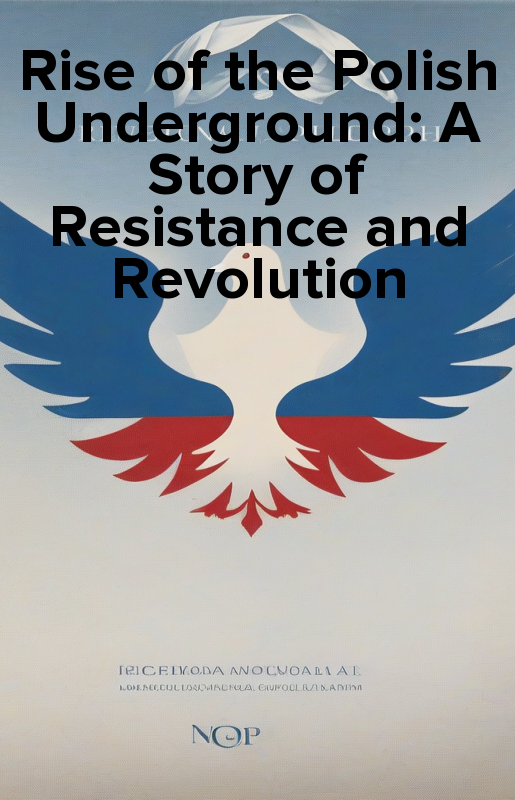Table of contents for ebook and audiobook: „Rise of the Polish Underground: A Story of Resistance and Revolution”
Here is the translation to English:
Democratic Opposition in the Polish People's Republic (1976-1981)
Introduction
Historical Context of the Polish People's Republic
- Background of the Polish October (1956)
- The rise of the Polish United Workers' Party (PZPR)
- Polish foreign policy during the Cold War
Research Objectives and Methodology
- Understanding the scope of the study
- Methodological approaches to studying opposition in authoritarian regimes
- Data collection and sources
Theoretical Framework
- Opposition in authoritarian regimes: a theoretical overview
- The role of civil society in democratization
- Comparative analysis of opposition movements in Eastern Europe
Chapters
Chapter 1: The Emergence of Democratic Opposition (1976-1977)
The Role of Intellectuals in the Emergence of Opposition
- The 1976 Workers' Defense Committee (KOR)
- The significance of Adam Michnik's writings
- The involvement of artists and writers in the opposition
Early Forms of Opposition Organization
- The establishment of the Committee for the Defense of Workers (KOR)
- The formation of the Independent Students' Union (NZS)
- The emergence of the Workers' Defense Committee's underground press
Government Response to the Emerging Opposition
- Repression and censorship
- The use of propaganda to discredit the opposition
- Co-optation and manipulation of opposition leaders
Chapter 2: Consolidation of the Opposition (1978-1979)
The Role of the Catholic Church in Supporting the Opposition
- John Paul II's influence on Polish politics
- The establishment of the Polish Bishops' Conference
- Church-state relations during the late 1970s
Expansion of Opposition Activities
- The growth of the independent trade union movement
- The emergence of women's and minority rights groups
- The development of alternative cultural institutions
Government Crackdown on the Opposition
- The 1979 martial law and its impact on the opposition
- Mass arrests and imprisonment of opposition leaders
- Increased use of force to suppress opposition protests
Chapter 3: International Support for the Opposition (1980-1981)
The Role of Western Governments in Supporting the Opposition
- US and European Union policy towards Poland
- The impact of economic sanctions on the Polish government
- The role of international organizations in supporting the opposition
International Solidarity with the Polish Opposition
- The rise of the Solidarity movement
- The significance of the Gdansk Agreement (1980)
- International media coverage of the Polish opposition
Government Response to International Pressure
- The use of propaganda to discredit international support for the opposition
- The imposition of martial law and its impact on international relations
- The role of the Soviet Union in supporting the Polish government
Chapter 4: The Impact of the Opposition on Polish Society
The Role of the Opposition in Promoting Social Change
- The growth of civil society and independent organizations
- The development of a free press and alternative media
- The promotion of human rights and democracy
The Impact of the Opposition on Polish Economy
- The growth of the independent trade union movement
- The impact of strikes and protests on the economy
- The role of the opposition in promoting economic reform
The Impact of the Opposition on Polish Politics
- The growth of a democratic opposition movement
- The promotion of free and fair elections
- The role of the opposition in shaping Poland's foreign policy
Chapter 5: Conclusion
Summary of Findings
- The emergence and development of the democratic opposition in Poland
- The impact of the opposition on Polish society, economy, and politics
- The role of international support and pressure in shaping the opposition's activities
Implications for Future Research
- The need for further study of the opposition's role in shaping Polish history
- The significance of the Polish experience for understanding democratization in Eastern Europe
- The relevance of the Polish case for contemporary debates on opposition and democracy

